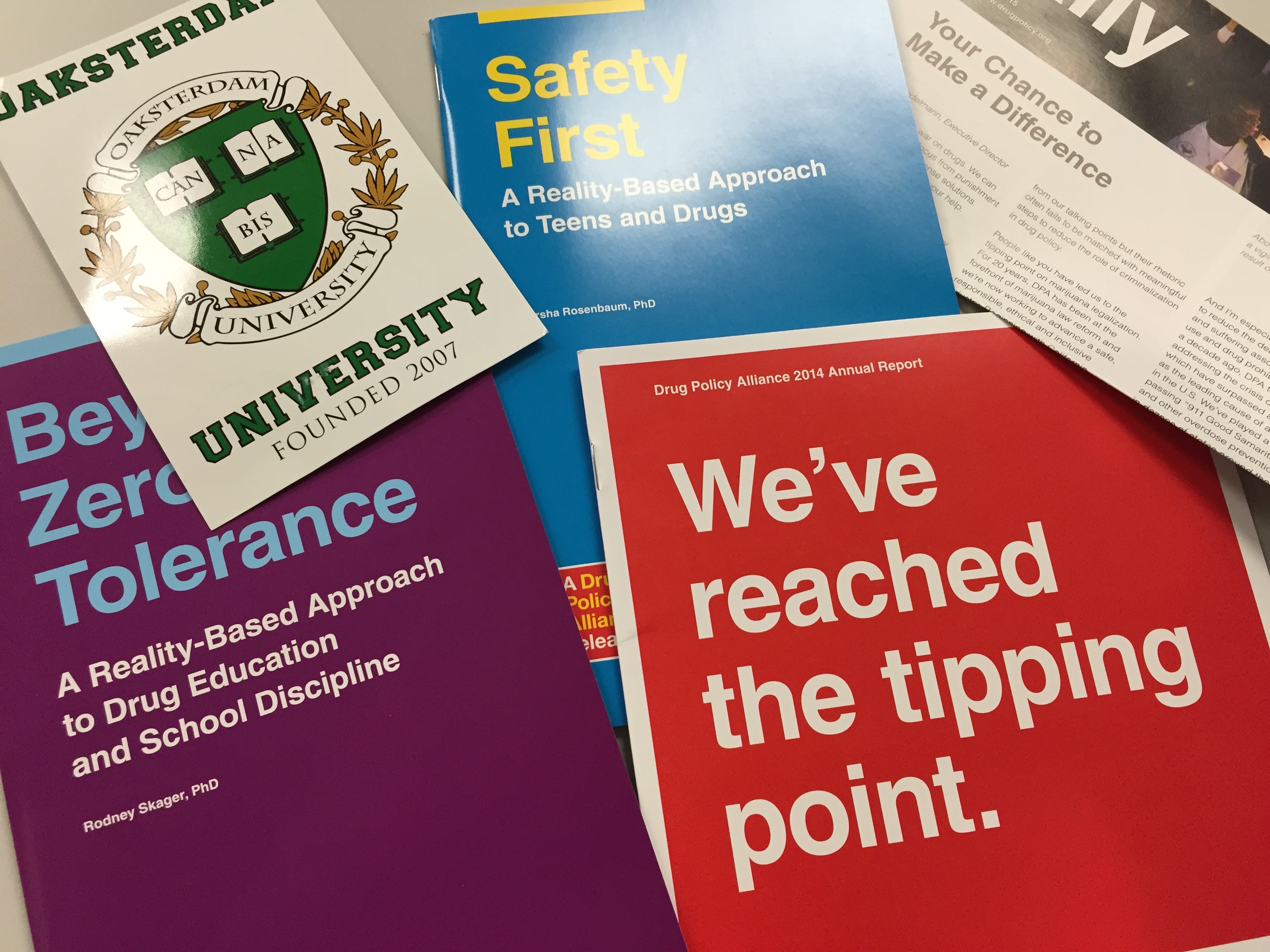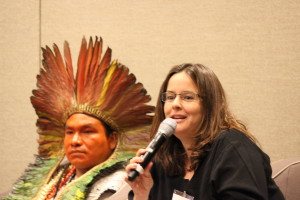Can a hallucinogenic drug be both powerful, valuable, spiritual — and dangerous?
Yes, said a panel of experts Saturday at the International Drug Policy Reform Conference in Arlington, Va. In an overflowing conference room, Ayahuasca, a plant-based brew originating from the Amazon, became the unlikely centerpiece of the three day biennial conference.
Depending on who you ask, Ayahuasca has effects somewhere between that of a strong green tea and strong psilocybin mushrooms. For centuries, indigenous populations have used this botanical extract as a traditional spirit mixture in ritual ceremonies but only in recent years has word spread to the rest of the world. And as the word spreads, a lot of questions need to be answered.
The audience audibly gasped when panelist Yawa Bene entered the room, fashionably late, wearing a full headdress of feathers and took the last available seat on the stage. Bene is the Vice-President at the Institute of Indigenous Traditions in Acre, Brazil, as well as a shaman of the ayahuasca tradition. Bene was flanked by Bia Labate, co-founder of the Nucleus for Interdisciplinary Studies of Psychoactives in Guadalajara, Mexico, who translated his words from Portuguese.
Bene spoke slowly and methodically as he began to enumerate the problems associated with mass recognition of traditional medicinal ceremonies. Bene said, “In the Amazon these things are our tradition and there is a long history of use.”
Drug-reform activists have descended on Ayahuasca as the next frontier in illicit drug legalization, specifically because of its relative obscurity and its arguable religious connotation. A push for legalization of the brew and its rituals could be made as a religious freedom issue.
Kenneth Tupper, an Phd in public health at the University of British Columbia in Vancouver, Canada, thinks that the main issue surrounding the drug is not legalization, but economics. According to Tupper, anytime a society begins to discuss regulation of a particular product much bigger issues of patents, markets and even stock futures come into play. “As we know, The true free market is the illicit market,” Tupper said as the other panelists fought to talk over one another.
Jeronimo Mazarrasa, a filmmaker and secretary of ICEERS (The International Center for Ethnobotanical Education Research and Service) in Ibiza, Spain, is also concerned about the over commercialization of the brew. Mazarrasa believes that protecting the indigenous people from exploitation as the drug gains popularity is where activists need to focus their attention. Mazarrasa said “The irony of this kind of tourism is that we destroy exactly what we were looking for as soon as we find it.”
For Luis Eduardo Luna, Director of the Wasiwaska Research Center in Santa Catarina, Brazil, the fundamental issue is one of human rights. In a statement that took much longer than his allotted time, Luna discussed “the freedom of experimenting with our consciousness.” The applause he got from that line was loudest of the conference.

